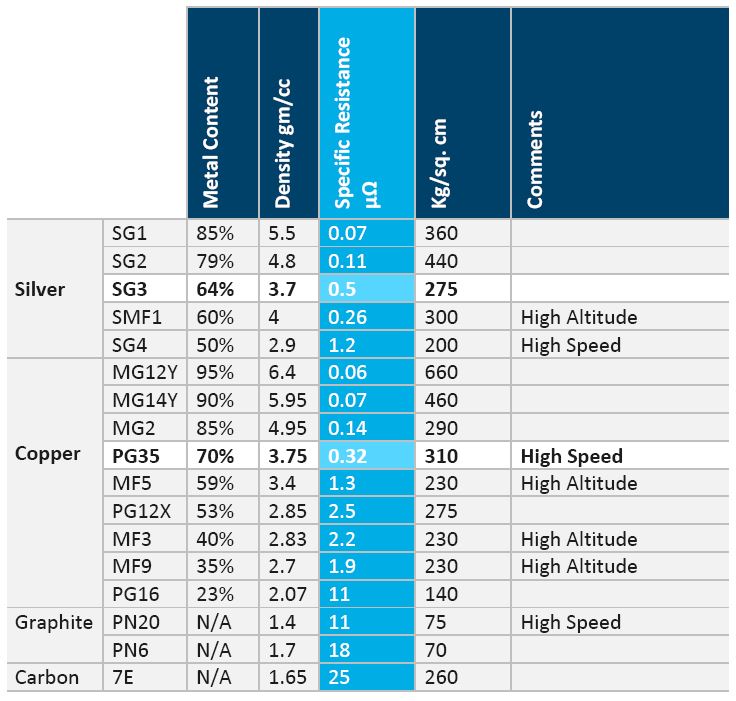Anglo Carbon brushes up the aftermarket with carbon technologies.
The dark art of understanding carbon brushes is best left to the experts. The AEMT visited Anglo Carbon near Leeds to understand more about the family company, and their expertise in conducting electricity. Kevin Wray, MD of Anglo Carbon, along with siblings Susan and Karen, met with us and elaborated on their focus of the rotating electric machines market.
Left to right; Steph, Susan, Karen And Kevin.
Since 1959, when the company was formed, the business has grown into a successful company employing over 25. In the late 80s they hit a landmark moment when they decided to invest in a materials research and production factory in Lancing, West Sussex. This opened up the southern market to them, and strategically placed them for an overseas market also.
The family Company, now in its third generation, works well together; all three siblings have grown up in the business sand know it intimately. The dynamics between the trio shows a close, yet distinctly professional relationship.
Recent investments in CNC machinery and robotics have automated stages of the manufacturing process to increase production. They also have presses ranging from 1.5 tonne to 300 tonne to create materials for an array of applications.
Niche market offerings
Anglo Carbon’s success has been born very much from its niche market offerings, and service levels. Their customers vary significantly, with applications ranging from micro brushes for prosthetics to large brushes for power generation.
The crux of carbon brush technology comes from the markets that demand the most when it comes to reliability and the longevity of a brush. In traditional power stations, for example, the cost of any downtime is astronomical. For this reason, the durability of a brush is critical for the upkeep of the facility. In transport; whether it is trains or trams, servicing is a costly exercise. For hard to reach places, such as oil rigs, offshore windfarms, or high-altitude applications, where maintenance is difficult or awkward, then a durable brush technology is required.
Their research centre in Lancing has developed ways to vastly increase the durability of brushes for these applications; and in doing so extending a product’s working life.
Brushes are normally made in batches catering for high volumes down to bespoke one off urgent orders. This is what gives Anglo Carbon the flexibility required to cater to niche markets. The bespoke offerings mean that one day they could be creating brushes for military applications, and the next for electric motors running in the 45°C heat of the Arabian desert.
Their materials include copper graphite, natural graphite, resin bonded materials, silver graphite, carbographite and electrographite. These materials cover a broad spectrum of operational duties and cycles. Once installed, they address many electrical, high speed, atmospheric, noise, radio frequency interference, and many other performance related problems that may be experienced.
R&D in Lancing
As well as producing the raw materials the facility also operates as a research and development centre, test centre and is a registered reclamation site (to extract rare materials from old brushes). The facility employs industrial chemists and material scientists who have been very successful in developing bespoke materials to satisfy customer requirements.
In such a competitive market, the investment in research and development has led to the development of a range of materials that offer extremely low resistances, enabling greater levels of current carrying capacity, or a reduction in size and cost. As an example in a brush material containing about 60% silver the research and development team have managed to produce the same resistance and power output using only 22% silver.
It is a similar story with copper; the research team have managed to produce a copper grade with a similar resistance to the silver equivalent. Looking at the table below highlights the similarities. A 64% silver brush has specific resistance of 0.5 µO, whereas the copper equivalent made up of 70% copper has a specific resistance quite similar at 0.32 µO.
Specific Resistance Table

It would be fair to say; the world of carbon brushes can get quite technical, quite quickly! With so many different operating environments being taking into account such as; altitude, humidity, durability, resistance, etc. it’s easy to get bogged down. But the table below demonstrates that cheaper alternatives are now being made available for both the lower and higher end of the market.
Service offering for AEMT members
A look at Anglo Carbon’s new website shows how diverse the fields and applications are for carbon and graphite products. Mixed with the skillset of members - there are plenty of opportunities available for both members and Anglo Carbon to work together.
They currently stock around 130 different types of carbon graphite, so for any given application a solution can be readily available. Reverse engineering a product is not uncommon. If a customer has installed a motor not quite being put to use as intended, then issues might occur such as brushes sparking, or wearing down too quickly. Anglo Carbon can reverse engineer brushes to suit the actual application motors are being used for. A next day service is available, and upon request Anglo Carbon are able to stamp customers brushes with their name or part number code. Once the brushes are fitted and the motor repaired – then hopefully the service centre can enjoy a share of the aftermarket for motor spares.
Joint site visits are also available, and a member of Anglo Carbon can join a customer on a site visit as an expert – this could help solve a problem on the spot, and ensure a proactive relationship with your customer. Alternatively, the Anglo Carbon technician can perform a site survey and setup a referencing system for you or your customer, so the next time an order is made, it is as quick and simple as possible.